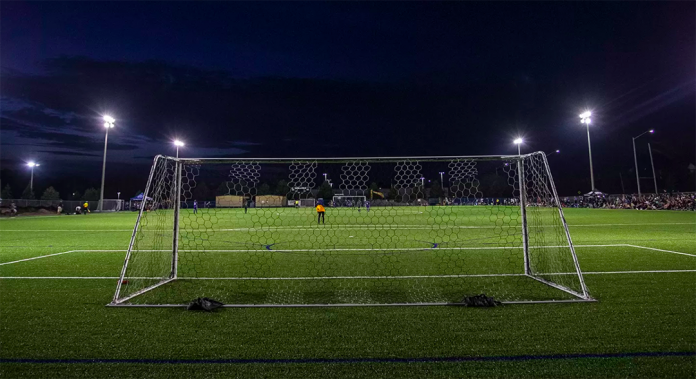Durham College’s sports department has faced significant weather-related challenges in recent years, reflecting the broader impacts of climate change in the region. Scott Dennis, head of the sports department, highlighted two key incidents: extended heat waves and a major snowstorm during the 2019 national soccer championships.
“The fields were covered in about two feet of snow,” Dennis said, explaining how the storm forced games to be relocated indoors and disrupted the schedule. The event required additional effort from staff and students to clear the field.
These examples of heat waves and storms are consistent with broader trends seen across the Durham Region. Studies show that extreme heat events are becoming more frequent, with heat waves expected to be more than double by 2050. These conditions not only affect outdoor sports, but can also intensify health risks for athletes, especially those participating in physically demanding activities.
In response to these challenges, Durham College has implemented sustainable practices within athletics. “It takes one little thing to help the environment,” Dennis explained. For example, he mentioned that they now provide reusable water bottles instead of single-use cups during games, as seen in the Ontario Colleges Athletics Association women’s volleyball championship.
This small change reduces public waste and is representative of the college’s commitment to sustainability. The college is also upgrading facilities with energy-efficient LED lighting to reduce energy consumption and exploring more sustainable turf options to replace the older turf in the campus field house, shifting away from rubber pellets to more environmentally friendly materials.
Beyond the college itself, Dennis pointed out that their apparel partner, Adidas, has also been focusing on sustainable initiatives. Durham College evaluates these efforts when selecting suppliers for varsity sports clothing, aiming to make sustainability a priority in all areas of their operations.
As climate change continues to pose challenges, Dennis believes the impacts on sports will only grow. “It’s not just college sports, but worldwide,” he said, reflecting a broader trend where extreme weather and environmental concerns are increasingly influencing athletic programs across the globe.
For Durham College, these steps are part of a broader commitment to environmental sustainability, a necessity as they adapt to the evolving realities of climate change.
Durham Region is already addressing these challenges at the municipal level, emphasizing the need to mitigate climate change and adapt to its impacts. The region has seen significant flooding in some lakeside communities and is making strides to improve infrastructure to withstand more frequent weather events.
Durham College is progressively integrating sustainable practices into its sports programs, while recognizing that more needs to be done to protect athletes and facilities from the growing impacts of climate change. As climate risks escalate, the college’s actions reflect a necessary shift toward sustainability, ensuring its sports programs can adapt to a changing world.




